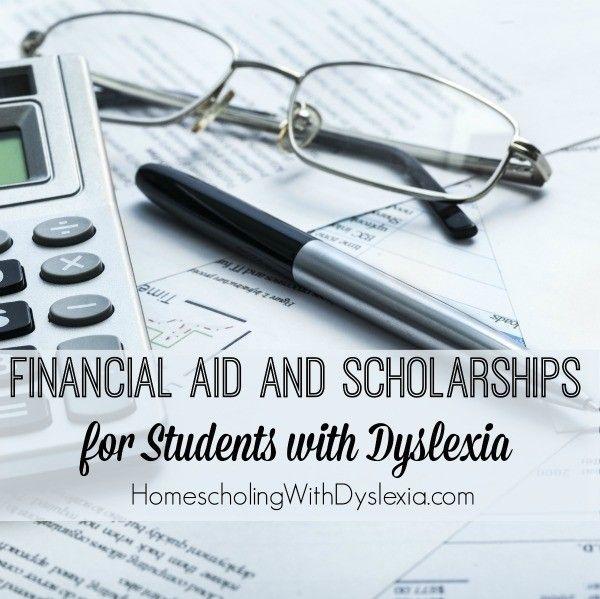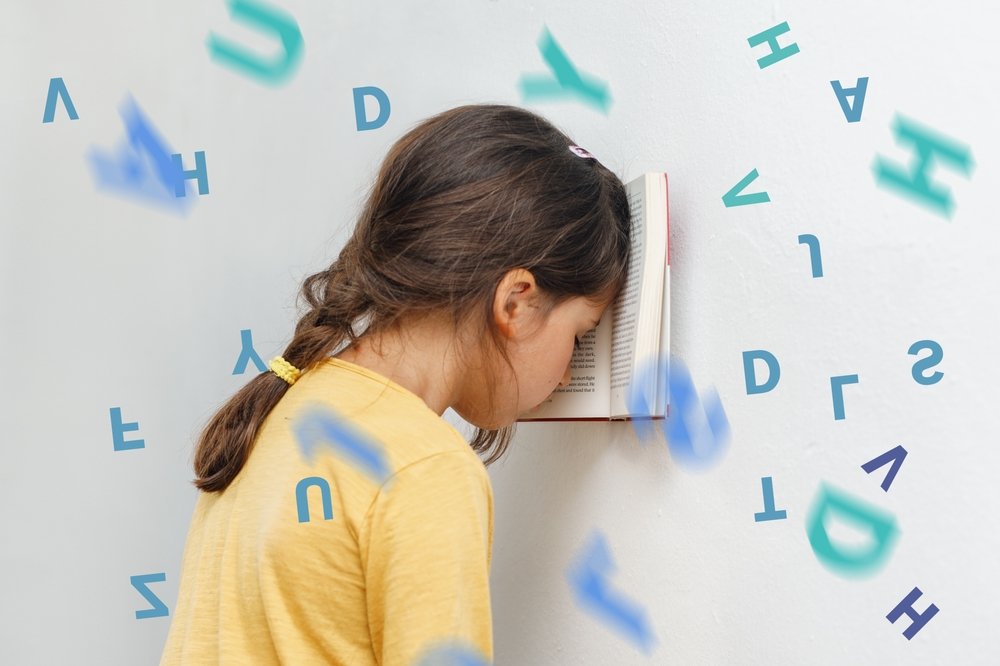
Unlocking Potential: My Journey and the Scholarships That Changed Everything for Dyslexic Students
I remember sitting in class, my eyes darting across the page, the words a jumbled mess of letters refusing to make sense. It felt like everyone else had a secret decoder ring for language, and I was left staring at hieroglyphics. School was a constant uphill battle, a silent struggle that often left me feeling frustrated and, frankly, a bit stupid. It wasn’t until I was much older that the word "dyslexia" entered my vocabulary, and with it, a huge wave of relief. Suddenly, my difficulties had a name, a reason, and a path forward. But even with understanding came a new set of worries, especially about college and how I would ever afford the specialized support I knew I’d need to thrive.
The idea of higher education always felt like a distant dream, shrouded in a fog of financial impossibility and academic self-doubt. My parents, bless their hearts, did their best, but the cost of college, coupled with potential expenses for learning accommodations, seemed astronomical. I figured I’d just have to work straight out of high school, maybe take some community college classes when I could afford them. The thought was disheartening, to say the least. I had dreams, just like any other young person, dreams of exploring new subjects, diving deep into things that fascinated me, and proving to myself that my brain, though wired differently, was capable of great things.
One afternoon, feeling particularly down after yet another standardized test where my brain felt like it was swimming in treacle, I stumbled upon an article online. It was about a student with dyslexia who had not only gone to a fantastic university but had done so with the help of a scholarship specifically for students with learning differences. My heart did a little flutter. Could such a thing actually exist? It felt like finding a hidden door in a wall I thought was solid. This wasn’t just about money; it was about recognition, about an acknowledgment that our unique way of processing information was not a barrier but a different kind of strength, deserving of support.
That moment ignited a spark. I realized that my situation wasn’t unique, and more importantly, neither were my needs. There were organizations, foundations, and individuals out there who understood the challenges and believed in the potential of dyslexic students. My journey from that day forward became a quest, not just for financial aid, but for validation and opportunity. It was a long road, sometimes confusing, often requiring persistence, but every step was worth it.
The first thing I learned was that finding these scholarships wasn’t always straightforward. It wasn’t like there was one giant "Dyslexia Scholarship" button to press. Instead, it was more like piecing together a mosaic. I started by looking at national organizations focused on learning disabilities. The National Center for Learning Disabilities (NCLD) quickly became my best friend. Their website was a treasure trove of information, and it was there I first learned about specific awards like the Anne Ford Scholarship. This scholarship, named after the daughter of the organization’s founder, is for high school seniors with documented learning disabilities who plan to pursue higher education. Just reading about it made my chest swell with hope. It wasn’t just for good grades; it was for showing resilience, a commitment to helping others, and a clear vision for the future despite facing unique challenges.
Then there were other wonderful groups, like the P. Buckley Moss Society, which offers scholarships to students with learning disabilities who are pursuing fine arts. While art wasn’t my main focus, it highlighted that scholarships aren’t just for one type of student or one field of study. It taught me to think broadly. Could there be scholarships tied to specific majors? What about local community organizations? The search became an investigation, a fascinating dive into the world of non-profits and educational support.
I spent countless hours on the internet, typing in every variation of "scholarships for dyslexic students," "financial aid learning disabilities," "college support for dyslexia," and "grants for neurodiverse students." I also looked at university websites directly. Many colleges, especially those with strong learning support centers, offer their own institutional scholarships for students with documented learning differences. These are often smaller, but every little bit helps, and applying for them can sometimes be less competitive than national awards. I discovered that reaching out to the disability services office at prospective universities early on was incredibly helpful. They often have a list of resources, both internal and external, that they can share.
Beyond the specific dyslexia-focused awards, I also learned not to overlook general scholarships. Many merit-based or essay-based scholarships don’t specifically mention learning disabilities, but they often have prompts that allow you to share your unique story, your struggles, and how you’ve overcome them. This is where dyslexia, and the resilience it builds, can actually become a strength in your application. Explaining how you’ve developed alternative learning strategies, how you’ve learned to advocate for yourself, or how your unique way of thinking has led to creative problem-solving can make your essay stand out.
The application process itself was another learning curve. It required meticulous organization, something that doesn’t always come naturally to a dyslexic brain. I created a spreadsheet to keep track of deadlines, required documents, and essay prompts for each scholarship. For every application, I needed official documentation of my dyslexia diagnosis. This usually meant submitting reports from educational psychologists or specialists. If you’re considering applying for these types of scholarships, make sure you have your diagnostic paperwork in order, or know how to get it. It’s a crucial piece of the puzzle.
Then came the essays. Oh, the essays! For someone who sometimes struggles with putting thoughts onto paper in a linear fashion, this felt like scaling Everest. But I approached it differently. Instead of seeing it as a hurdle, I saw it as an opportunity to tell my story, in my voice. I wrote about the frustration of not being able to read at the same pace as my peers, the embarrassment of being called on to read aloud, but more importantly, I wrote about the strategies I developed. I talked about how dyslexia forced me to become an exceptional listener, how it honed my visual thinking skills, and how it taught me the importance of perseverance. I focused on my strengths, the ways my brain excelled, and how my experiences had shaped my character and my aspirations. I made sure to proofread everything multiple times, often with the help of a trusted teacher or friend, because even with all my efforts, little errors could easily slip past my eyes.
Recommendation letters were another vital part. I asked teachers who knew me well, who had seen my struggles and my triumphs, and who could speak to my character and determination. I made sure to give them plenty of notice and provided them with a brief summary of my achievements, my goals, and the specific scholarships I was applying for. This helped them tailor their letters to highlight aspects of my personality and academic journey that would be most relevant.
The waiting period after submitting applications was agonizing. Every email notification sent a jolt of anxiety through me. But then, one day, an email arrived that made me gasp. It was an acceptance letter for a scholarship. Not just any scholarship, but one from a national organization that recognized learning differences. I remember jumping up and down, tears streaming down my face. It wasn’t the full cost of tuition, but it was a significant amount, enough to make a real difference, enough to make college feel like a tangible reality rather than a faraway dream. And that wasn’t the only one. Over the next few weeks, a few more positive responses trickled in, some from smaller local foundations, some from the universities themselves.
These scholarships weren’t just financial aid; they were a profound affirmation. They told me that my struggles were seen, that my potential was valued, and that my difference was not a deficit. They eased the financial burden on my family, allowing me to focus on my studies without the constant weight of money worries. More importantly, they boosted my confidence in a way I hadn’t thought possible. Knowing that someone out there believed in me enough to invest in my education gave me the courage to tackle challenging courses, to seek out support when I needed it, and to fully embrace my unique learning style.
Thanks to those scholarships, I went to college. I pursued a degree in a field I loved, where my visual and creative thinking skills, honed by years of navigating dyslexia, proved to be an asset. I learned to advocate for myself, utilizing the accommodations available to me – extended time on tests, audiobooks, note-takers – without shame. I met other students with dyslexia, and together, we formed a support network, sharing strategies and celebrating successes. My college experience was rich, challenging, and ultimately, incredibly rewarding.
So, if you’re a dyslexic student reading this, feeling the same doubts and fears I once did, please know this: there is hope, and there are resources out there waiting for you. Don’t let the word "dyslexia" limit your dreams. Instead, let it be a testament to your incredible resilience and unique strengths. Your brain works differently, and that’s not a weakness; it’s a superpower waiting to be harnessed.
Here’s my advice to you:
- Start Early, Stay Organized: The scholarship search takes time. Begin well before your senior year of high school if you can. Create a system – a spreadsheet, a binder – to keep track of applications, deadlines, and required documents.
- Gather Your Documentation: Make sure you have official documentation of your dyslexia diagnosis. This is almost always a requirement for learning disability-specific scholarships.
- Explore All Avenues: Look beyond just dyslexia-specific scholarships. Check national organizations, local community foundations, university disability services offices, and even general scholarships where your story can shine.
- Tell Your Story Powerfully: Your personal journey with dyslexia is a powerful narrative. In your essays, focus not just on the challenges, but on how you’ve overcome them, the unique strengths you’ve developed, and how your experiences have shaped your character and ambitions. Show your resilience and determination.
- Seek Help with Applications: Don’t be afraid to ask for help with proofreading essays or navigating online application portals. A trusted teacher, counselor, or family member can be an invaluable resource.
- Network and Ask Questions: Talk to your school counselors, learning support specialists, and even college admissions officers. They might have insights into scholarships you wouldn’t find on your own.
- Apply to Many: It’s a numbers game. The more scholarships you apply for, the higher your chances of receiving one. Don’t get discouraged by rejections; see them as stepping stones to the next opportunity.
- Believe in Yourself: This is perhaps the most important piece of advice. Your dyslexia doesn’t define your intelligence or your potential. It’s a part of who you are, and it can be a source of incredible creativity, empathy, and problem-solving skills. Embrace it, and let it fuel your pursuit of higher education.
My journey showed me that scholarships for dyslexic students are more than just financial aid; they are gateways to opportunity, affirmations of worth, and powerful tools that can transform dreams into reality. If I could navigate that jumbled world of words and find my path, so can you. Go forth, explore, and unlock your own amazing potential. The world is waiting for your unique contributions.


